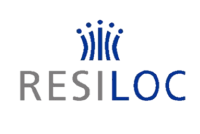
RESILOC
Duration: Jan 2019 — Dec 2022
Resilience is defined by the United Nations as “the ability to resist, absorb and accommodate to the effects of a hazard, in a timely and efficient manner”. Thus, resilient communities are those in which their citizens, environment, businesses, and infrastructures have the capacity to withstand, adapt, and recover in a timely manner from any kind of hazards they face, either planned or unplanned. In recent years efforts have been spent to tackle resilience and there is, still, a long path forward in defining an EU valid and sound approach to the problem. RESILOC aims at studying and implementing a holistic framework of studies, methods and software instruments that combines the physical with the less tangible aspects associated with human behaviour. The study-oriented section of the framework will move from a thorough collection and analysis of literature and stories from the many approaches to resilience adopted all over the World. The results of the studies will lead to the definition of a set of new methods and strategies where the assessment of the resilience indicators of a community will be performed together with simulations on the “what-if” certain measures are taken.
In RESILOC, the role of JSI is primarily focused on technology-related issues and the support of trials. Department of Communication Systems will be mainly concerned with solutions for radio localization of victims or first responders, basic infrastructure-less communication and crowd-sensing solutions. Department of Knowledge Technologies will focus on real-time sentiment analysis from social media and news, and crowdsensing data analytics from device measurements.